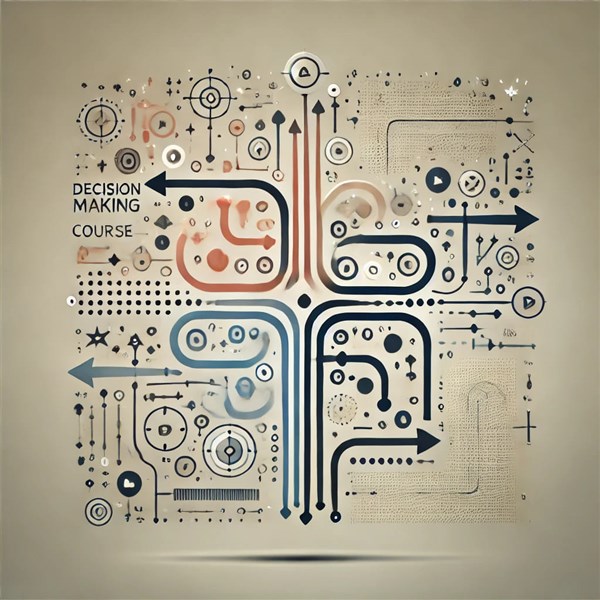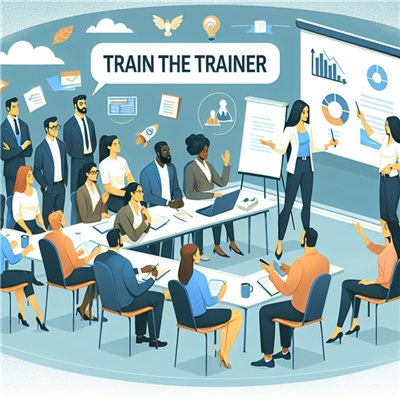
In a world filled with choices, the ability to make effective decisions is crucial for personal and professional success. From everyday life choices to complex business decisions, the stakes can often feel high, making it essential to have a systematic approach to decision making. A Decision Making Course offers a structured environment where individuals can learn, practice, and refine their decision-making skills.
This blog will delve into what you can expect from a decision-making course, the skills you’ll gain, and how these skills can empower you to make better choices that can transform your life and career.
Why Decision Making Matters
Decision making is a fundamental skill that influences various aspects of our lives. Whether you are a student choosing a career path, a manager navigating team dynamics, or an entrepreneur facing business challenges, your decisions can shape your future.
- Impact on Leadership: For leaders, effective decision making is essential. Poor decisions can lead to missed opportunities, wasted resources, and even organizational failure. Conversely, informed and timely decisions can inspire confidence and drive success.
- Personal Growth: On a personal level, the ability to make sound decisions can lead to improved relationships, greater satisfaction, and enhanced overall well-being. Recognizing how choices affect your life trajectory is crucial for personal development.
Given its importance, investing in a decision-making course can be a game-changer.
What to Expect from a Decision Making Course
1. Understanding the Decision-Making Process
A foundational aspect of any decision-making course is understanding the systematic process involved in making decisions. Participants will learn about various stages, including:
- Identifying the Problem: Recognizing and defining the problem or opportunity that requires a decision.
- Gathering Information: Collecting relevant data and insights that will inform the decision.
- Generating Alternatives: Brainstorming possible options or solutions to address the problem.
- Evaluating Alternatives: Assessing the pros and cons of each option based on criteria such as feasibility, cost, and impact.
- Making the Decision: Choosing the best alternative based on thorough analysis.
- Implementing the Decision: Taking action and executing the chosen solution.
- Reviewing the Decision: Reflecting on the outcome to learn from the process and improve future decision making.
By mastering this structured approach, you’ll gain clarity and confidence in your ability to tackle complex decisions.
2. Critical Thinking Skills
A critical component of effective decision making is critical thinking. A decision-making course emphasizes the importance of evaluating information and arguments critically. Participants will learn to:
- Analyze Arguments: Distinguish between valid and invalid arguments, helping to filter out biases and misinformation.
- Assess Evidence: Evaluate the quality and relevance of evidence supporting various options.
- Make Informed Judgments: Use logical reasoning to reach conclusions based on the best available information.
Strengthening your critical thinking skills allows you to approach decisions with a more objective and analytical mindset, reducing the influence of emotions and biases.
3. Emotional Intelligence in Decision Making
Emotional intelligence (EI) plays a significant role in how we make decisions. A decision-making course will often explore the intersection of EI and decision making, including:
- Self-Awareness: Recognizing your own emotions and how they impact your decisions.
- Empathy: Understanding the emotions of others to make decisions that consider the feelings and perspectives of stakeholders.
- Emotional Regulation: Learning to manage your emotions effectively, especially under stress, to make more rational decisions.
By developing your emotional intelligence, you’ll enhance your ability to navigate interpersonal dynamics and make decisions that are not only effective but also sensitive to the needs of others.
4. Decision-Making Techniques and Tools
Participants in a decision-making course will be introduced to a variety of techniques and tools designed to aid the decision-making process. Some commonly covered methods include:
- SWOT Analysis: Evaluating the Strengths, Weaknesses, Opportunities, and Threats related to a decision.
- Decision Trees: A visual representation of different decision paths and their potential outcomes, helping to clarify choices.
- Cost-Benefit Analysis: Comparing the expected costs and benefits of different options to identify the most viable solution.
- Consensus Building: Techniques for facilitating group decision making, ensuring that all voices are heard and valued.
These tools equip you with practical strategies that can be applied in real-life situations, enhancing your ability to make informed decisions.
5. Handling Uncertainty and Risk
In many cases, decision making involves navigating uncertainty and risk. A decision-making course will help you develop strategies for managing these challenges, including:
- Risk Assessment: Learning to identify, analyze, and mitigate risks associated with various options.
- Scenario Planning: Creating and analyzing different scenarios to anticipate potential outcomes and prepare for unexpected developments.
- Contingency Planning: Developing backup plans to ensure you can respond effectively if the initial decision does not yield the desired results.
By understanding how to manage uncertainty, you’ll gain the confidence to make decisions even when complete information is unavailable.
6. Practical Applications and Case Studies
A well-structured decision-making course often incorporates practical applications and case studies to reinforce learning. Participants may engage in:
- Real-World Scenarios: Analyzing case studies that highlight decision-making challenges faced by organizations or individuals.
- Group Exercises: Collaborating with peers to solve complex problems, allowing you to practice applying the skills you’ve learned in a supportive environment.
- Role-Playing: Engaging in role-playing exercises to simulate decision-making scenarios, helping you develop communication and negotiation skills.
These practical applications help solidify your understanding of the decision-making process and prepare you for real-life situations.
7. Personal Development and Self-Reflection
A decision-making course encourages personal growth and self-reflection, allowing participants to gain insights into their decision-making styles and tendencies. Through self-assessment and reflection exercises, you can explore:
- Your Decision-Making Style: Understanding whether you tend to be more analytical, intuitive, or emotional in your decision-making approach.
- Identifying Biases: Recognizing cognitive biases that may affect your decisions, such as confirmation bias or anchoring.
- Setting Goals for Improvement: Establishing personal goals for enhancing your decision-making skills moving forward.
By engaging in self-reflection, you’ll foster a deeper understanding of your decision-making processes and identify areas for growth.
Conclusion
A Decision Making Course offers a comprehensive approach to enhancing your decision-making skills, equipping you with the tools, techniques, and insights necessary to make informed choices. By understanding the decision-making process, developing critical thinking and emotional intelligence, and learning practical techniques, you can navigate personal and professional challenges with confidence.
In a world where choices abound and the stakes are high, investing in your decision-making abilities is not just beneficial—it’s essential. Whether you aim to advance in your career, improve your personal life, or lead others effectively, the skills you gain from a decision-making course can empower you to make choices that align with your goals and values. Take the step to unlock the power of choice and transform your decision-making abilities today!
Earning a decision making certification can provide you with a competitive edge in the job market. It verifies that you have undergone rigorous training and possess the necessary skills to contribute effectively to your organization's decision-making process.
In conclusion, a decision making training program is a worthwhile investment for anyone looking to improve their decision-making abilities, boost their confidence, and advance their career. At Koenig Solutions, a leading IT training company, we offer a variety of certification courses in top technology and soft skills, including decision making. Our courses are designed to provide you with the skills and knowledge necessary to excel in your career.







COMMENT